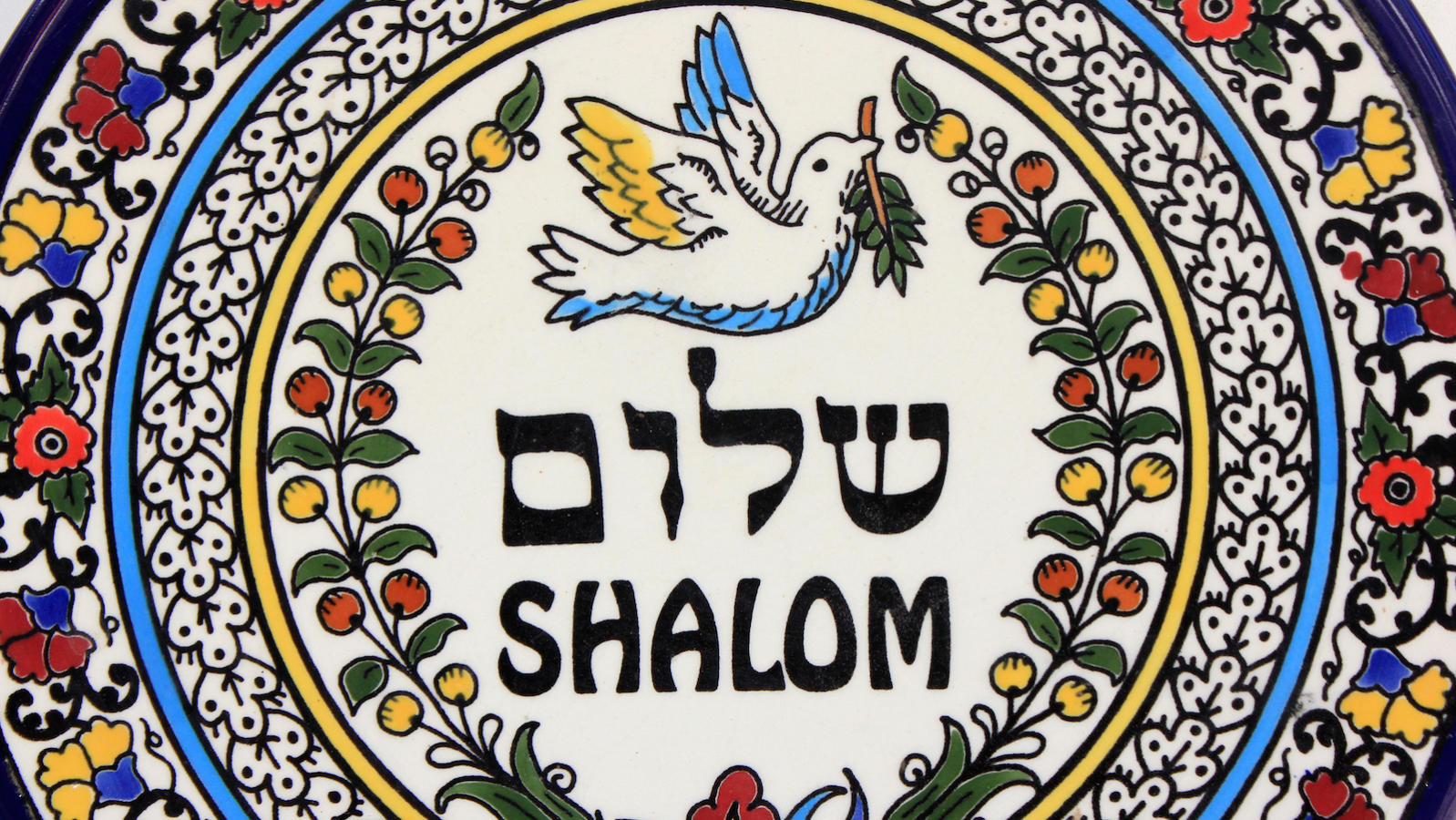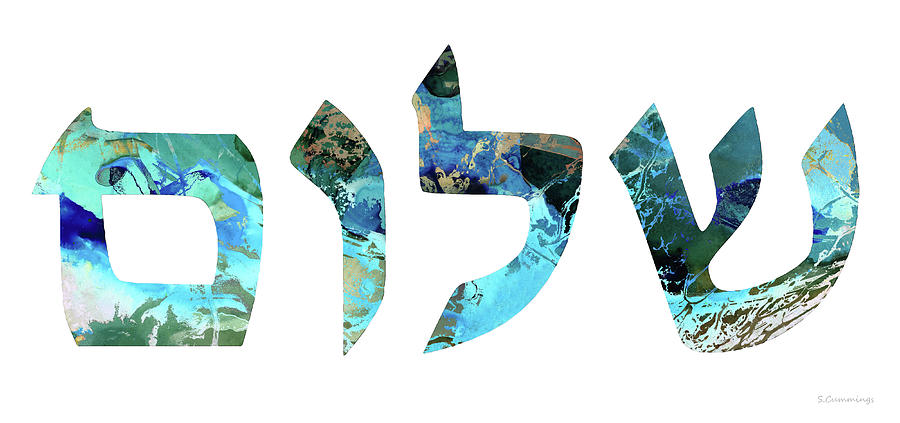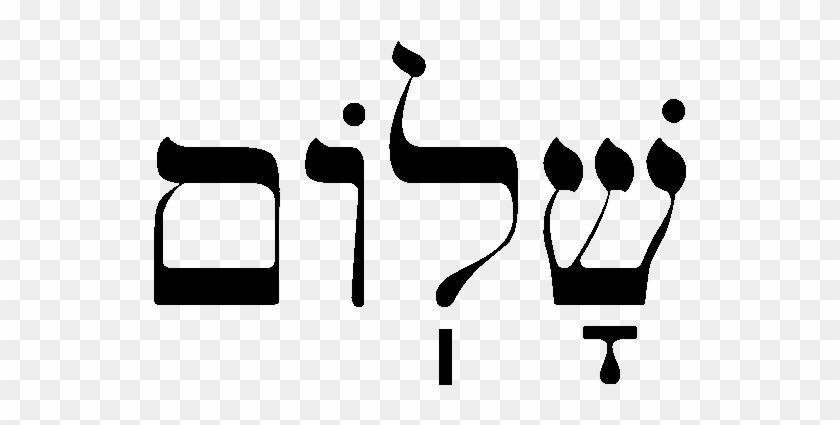


εἰρήνην


Proverbs 3
New International Version
Wisdom Bestows Well-Being
1 My son, do not forget my teaching,
but keep my commands in your heart,
2 for they will prolong your life many years
and bring you peace and prosperity.
3 Let love and faithfulness never leave you;
bind them around your neck,
write them on the tablet of your heart.
4 Then you will win favor and a good name
in the sight of God and man.
5 Trust in the Lord with all your heart
and lean not on your own understanding;
6 in all your ways submit to him,
and he will make your paths straight.[a]
7 Do not be wise in your own eyes;
fear the Lord and shun evil.
8 This will bring health to your body
and nourishment to your bones.
9 Honor the Lord with your wealth,
with the firstfruits of all your crops;
10 then your barns will be filled to overflowing,
and your vats will brim over with new wine.
11 My son, do not despise the Lord’s discipline,
and do not resent his rebuke,
12 because the Lord disciplines those he loves,
as a father the son he delights in.[b]
13 Blessed are those who find wisdom,
those who gain understanding,
14 for she is more profitable than silver
and yields better returns than gold.
15 She is more precious than rubies;
nothing you desire can compare with her.
16 Long life is in her right hand;
in her left hand are riches and honor.
17 Her ways are pleasant ways,
and all her paths are peace.
18 She is a tree of life to those who take hold of her;
those who hold her fast will be blessed.
19 By wisdom the Lord laid the earth’s foundations,
by understanding he set the heavens in place;
20 by his knowledge the watery depths were divided,
and the clouds let drop the dew.
21 My son, do not let wisdom and understanding out of your sight,
preserve sound judgment and discretion;
22 they will be life for you,
an ornament to grace your neck.
23 Then you will go on your way in safety,
and your foot will not stumble.
24 When you lie down, you will not be afraid;
when you lie down, your sleep will be sweet.
25 Have no fear of sudden disaster
or of the ruin that overtakes the wicked,
26 for the Lord will be at your side
and will keep your foot from being snared.
27 Do not withhold good from those to whom it is due,
when it is in your power to act.
28 Do not say to your neighbor,
“Come back tomorrow and I’ll give it to you”—
when you already have it with you.
29 Do not plot harm against your neighbor,
who lives trustfully near you.
30 Do not accuse anyone for no reason—
when they have done you no harm.
31 Do not envy the violent
or choose any of their ways.
32 For the Lord detests the perverse
but takes the upright into his confidence.
33 The Lord’s curse is on the house of the wicked,
but he blesses the home of the righteous.
34 He mocks proud mockers
but shows favor to the humble and oppressed.
35 The wise inherit honor,
but fools get only shame.
1Children, obey your parents in the Lord, for this is right. 2“Honor your father and mother”—which is the first commandment with a promise— 3“so that it may go well with you and that you may enjoy long life on the earth.” a
Exodus 20:12
New International Version
12 “Honor your father and your mother, so that you may live long in the land the Lord your God is giving you.
What is shalom?
The ancient Hebrew concept of peace, rooted in the word "shalom," meant wholeness, completeness, soundness, health, safety and prosperity, carrying with it the implication of permanence.
--------------------------------------------------------------------------------------------------
Isaiah 26:3 NIV
--------------------------------------------------------------------------------------------------
John 14:27
New International Version
27 Peace I leave with you; my peace I give you. I do not give to you as the world gives. Do not let your hearts be troubled and do not be afraid.εἰρήνην Peace
Philippians 4:7 NIV
Tefillin (/ˈtfɪlɪn/; Israeli Hebrew: תְּפִלִּין / תְּפִילִּין; Askhenazic pronunciation: [tfiˈlin]) or phylacteries, are a set of small black leather boxes with leather straps containing scrolls of parchment inscribed with verses from the Torah. Tefillin are worn by adult Jews during weekday morning prayers. In Orthodox and traditional communities, they are worn solely by men, while some Reform and Conservative (Masorti) communities allow for them to be worn by both men and women. By traditional Jewish Law (halacha), women are exempt from most time-dependent positive commandments.
Although "tefillin" is technically the plural form (the singular being "tefillah"), it is often used as a singular as well.[1] The arm-tefillah (or shel yad [literally "of the hand"]) is placed on the upper (non-dominant) arm, and the strap wrapped around the forelimb, hand and middle finger; while the head-tefillah (or shel rosh [literally "of the head"]) is placed between the eyes at the boundary of the forehead and hair. They are intended to fulfill the Torah's instructions to maintain a continuous "sign" and "remembrance" of the Exodus from Egypt, as they were originally worn all day, from sunrise to sunset.
The biblical verses often cited as referring to tefillin are obscure. Deuteronomy 11:18, for instance, does not designate explicitly what specifically to "bind upon your arm", and the definition of "totafot between your eyes" is not obvious. These details are delineated in the Oral Torah. At least as early as the 1st century CE, many Jews understood the verses literally and wore physical tefillin, as shown by archaeological finds at Qumran[2] and a reference in the New Testament.

No comments:
Post a Comment